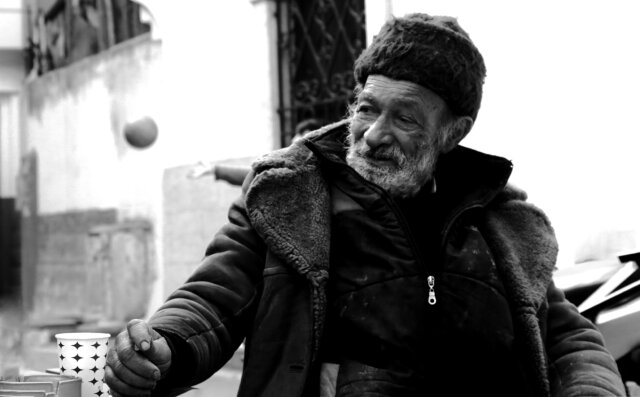The Coat That Saved Me
It was a cold November evening, just a few days before Thanksgiving, when Peter found himself sitting alone in his small apartment, staring blankly at the floor. The weight of the past year hung heavy on his shoulders. Nothing seemed to be going right—his job was going nowhere, bills were piling up, and his long-time relationship had just ended. He felt stuck in a cycle of failure, like life was slipping through his fingers.
That evening, as the silence pressed in on him, Peter couldn’t stop thinking about how empty his life felt. He had big dreams once, but now they seemed out of reach. Everything he had hoped for felt impossibly distant. He didn’t even know why he was still trying. There were moments when he wondered if it was all worth it.
As Thanksgiving approached, he dreaded the holiday. What was there to be thankful for? It was just another reminder of how far he was from where he wanted to be. That was when the story of his Uncle John came to mind.
Growing up, Peter always admired his Uncle John—a man who had faced his own share of struggles. Uncle John had lost his job, his home, and everything he worked for when the economy crashed. But instead of giving up, he found small ways to keep going. One Thanksgiving years ago, when Peter was just a boy, he remembered sitting at the dinner table, watching Uncle John laugh and tell stories like nothing in the world could shake him. Peter had been confused. How could someone be so joyful when they had lost so much?
Years later, when Peter was older, Uncle John finally shared the secret behind his calm and steady spirit. They both sat at the fireplace and uncle John narrated his story to Peter. He told Peter about a day when he was at his lowest point, jobless and homeless, with nothing but the clothes on his back. He was walking aimlessly through the city, wondering how his life had come to this, when he crossed paths with a stranger—a man who looked even more desperate than he did.
The man, a beggar sitting on the sidewalk, asked Uncle John for something, anything that could help. But John didn’t have anything to give. The only thing he had left was the old, worn-out coat he was wearing.
For a moment, John hesitated. This coat was the only thing keeping him warm on the cold streets. But then he realized something. He still had something. He wasn’t completely empty. So, with a deep breath, he took off his coat and handed it to the beggar.
What happened next changed John’s life. The man’s eyes filled with tears as he gratefully accepted the coat, and in that brief exchange, Uncle John realized that even in his darkest moment, he had something to offer—something to be thankful for. He had been so focused on everything he’d lost that he forgot to appreciate what he still had.
As Peter sat there, remembering this story, something inside him shifted. He had been so wrapped up in his struggles that he had failed to see the small but meaningful things that still surrounded him. His apartment, though small, was warm. He had friends who cared about him, even if life wasn’t perfect. He had his health, his skills, and opportunities that were still waiting for him.
Inspired by Uncle John’s story, Peter decided to take a different approach that Thanksgiving. Instead of brooding over what was missing, he made a list of every little thing he could be grateful for—his morning coffee, a kind text from a friend, the sunset he watched from his window. The more he wrote, the more he realized how much he had overlooked.
That Thanksgiving, Peter didn’t spend the day feeling sorry for himself. Instead, he invited a few friends over for a simple dinner, sharing stories and laughter around the table. He noticed how, even in their own struggles, each person had something to be thankful for. It wasn’t about having the perfect life or achieving every dream—it was about recognizing the blessings in the midst of the journey.
From that day forward, Peter understood what Uncle John had discovered all those years ago: Gratitude doesn’t come from having everything you want—it comes from appreciating what you already have. It’s about finding light in the darkest moments and realizing that, even when life seems hard, there’s always something worth being thankful for.
And so, Peter’s life didn’t magically become perfect after that Thanksgiving, but his heart changed. He started to see the world differently. Each day became an opportunity to give thanks, to celebrate the small victories, and to find joy in the simple act of living.
Just like his uncle had shown him, gratitude became Peter’s source of strength, and it reminded him that no matter what, he always had something to give—something to be thankful for.
Sorry, there were no replies found.
Log in to reply.

